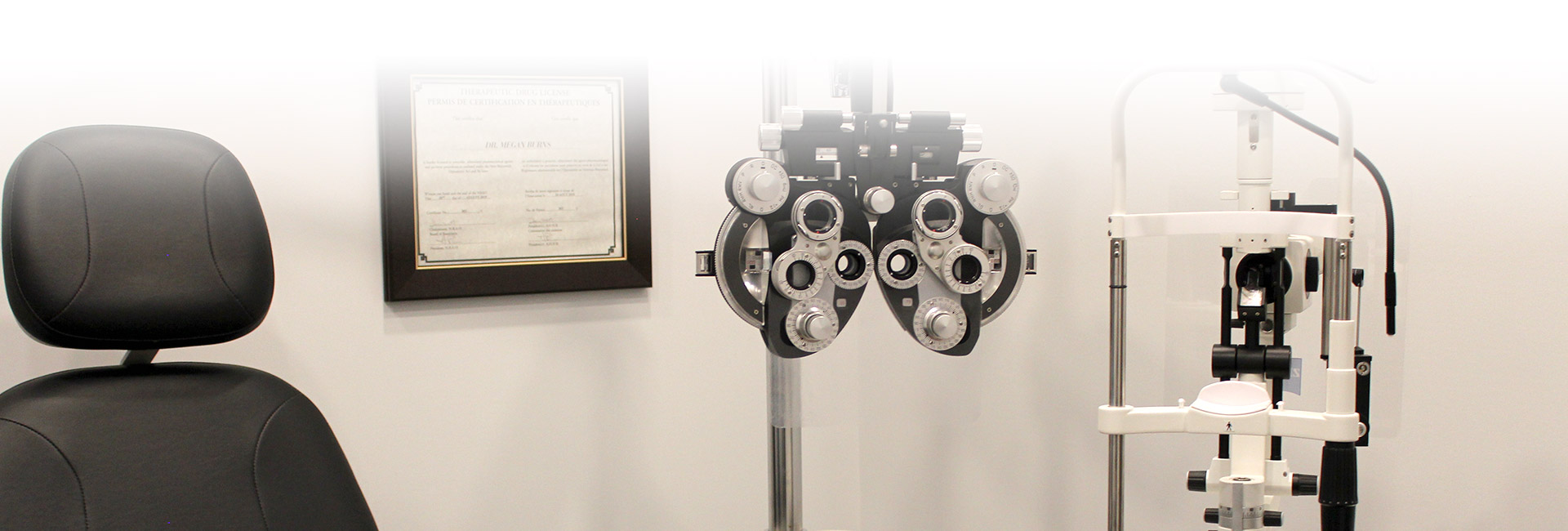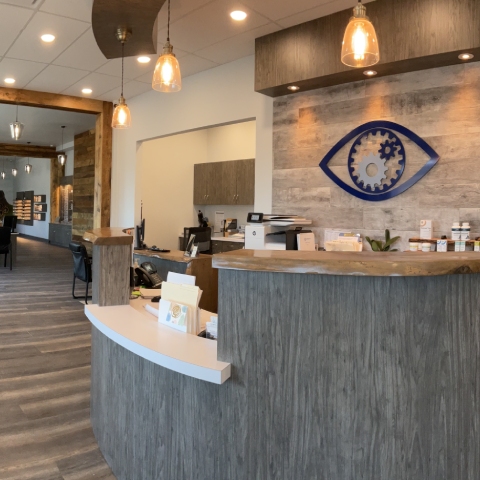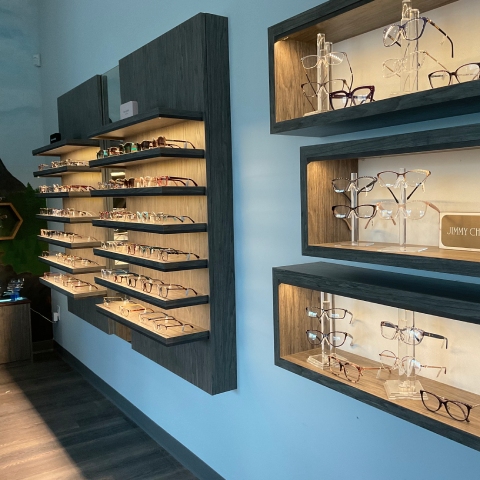Diabetes & Your Eyes
Diabetes type 1 and 2 affect your entire health. The longer you have diabetes or have difficulty managing your blood sugar levels, you may be at a higher risk for developing eye diseases that negatively affect your sight.
People with diabetes should see their optometrist annually, even if they have a vision check at their family doctor’s office. Our optometrists perform extra tests to check the health inside of your eye.

Managing Your Eye Health
During your diabetic eye exam, we look for signs of diabetic eye disease so we can get you started on prevention or treatments as quickly as possible. The sooner we diagnose any eye disease or eye health concern, the better advantage we have to prevent damage.
Diabetic Retinopathy
High blood sugar levels can damage the blood vessels in your eyes. Diabetic retinopathy reduces blood flow to the eyes, causing small blood vessels to leak, swell, and close. If this occurs, abnormal blood vessels may form, causing additional problems like macular edema.
Macular Edema
Edema is swelling in areas of your body. Macular edema occurs when fluid in your eye builds up and causes your macula to swell. Your macula is responsible for clear, straight-forward vision, but macular edema can cause your vision to become wavy or distorted.
Glaucoma
People with diabetes are at a higher risk of developing glaucoma. Although glaucoma often develops without any visible symptoms, it does damage your vision over time, beginning in your peripheral vision and progressing inward. Glaucoma can’t be reversed, but with early detection, its progression can be slowed down.
Cataracts
People with diabetes are more likely to develop cataracts earlier in life than the average person. Cataracts cause cloudiness and blurred vision, affecting the crystalline lens in your eye. When diabetic cataracts become visually significant, they are removed surgically
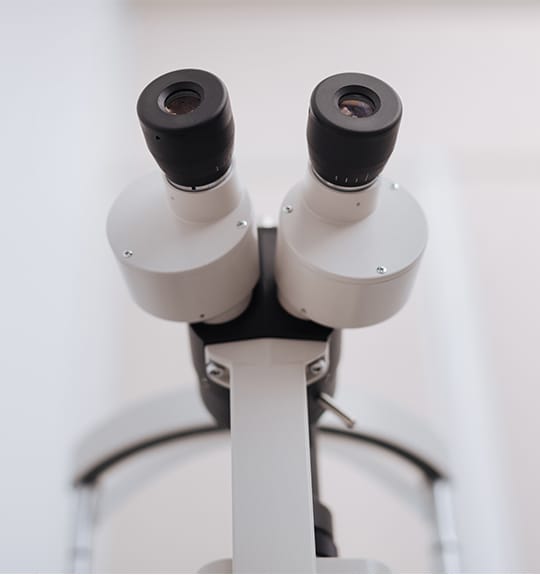
Have Your Eyes Checked
Regular eye exams are the best preventative measure you can take to ward off vision-threatening eye diseases.
Our optometrists can mitigate the symptoms associated with eye diseases and prevent as much damage as possible through early detection and treatment.
If you have diabetes, you should visit your optometrist every year for a comprehensive eye exam. If you’re concerned about your vision or ocular health, speak with your optometrist as soon as possible.
An ounce of prevention is worth a pound of cure.

Visit Us
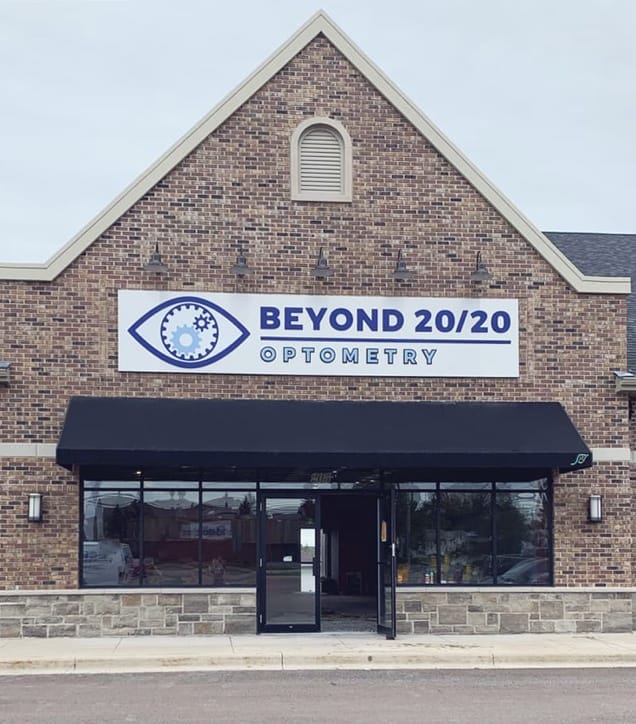
Our Address
- 1688 Mountain Rd. – Unit 205
- Moncton, NB E1G 1A6
Contact Information
- Phone: (506) 858-2020
- Email: [email protected]
Hours of Operation
- Monday: 10:00 AM – 5:00 PM
- Tuesday: 9:00 AM – 5:00 PM
- Wednesday: 11:00 AM – 7:00 PM
- Thursday: 11:00 AM – 7:00 PM
- Friday: 9:00 AM – 5:00 PM
- Saturday: CLOSED
- Sunday: CLOSED

